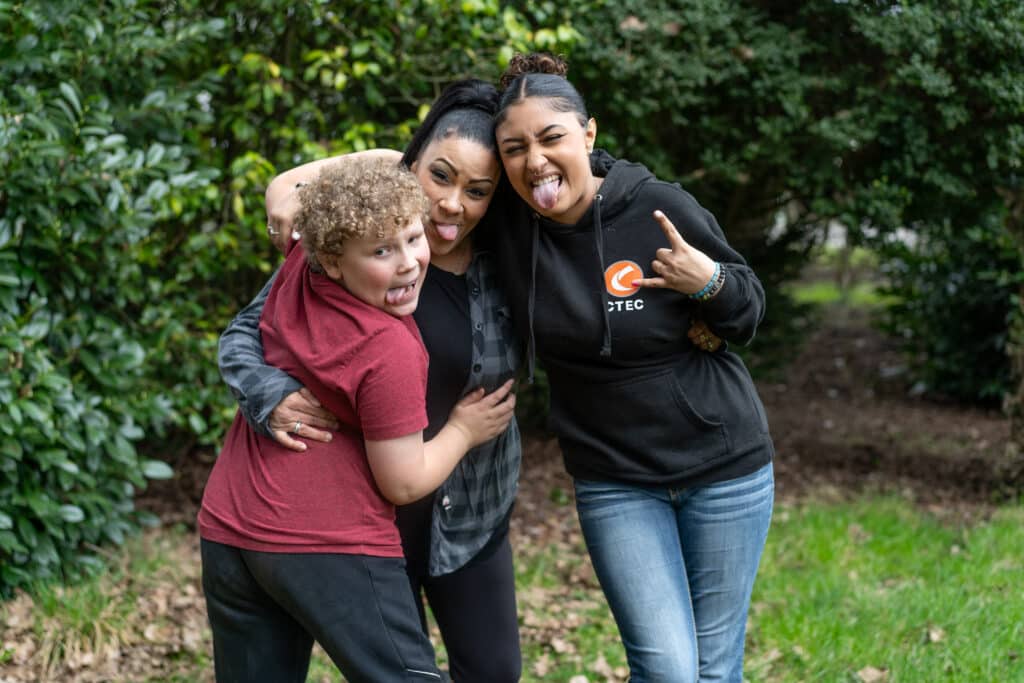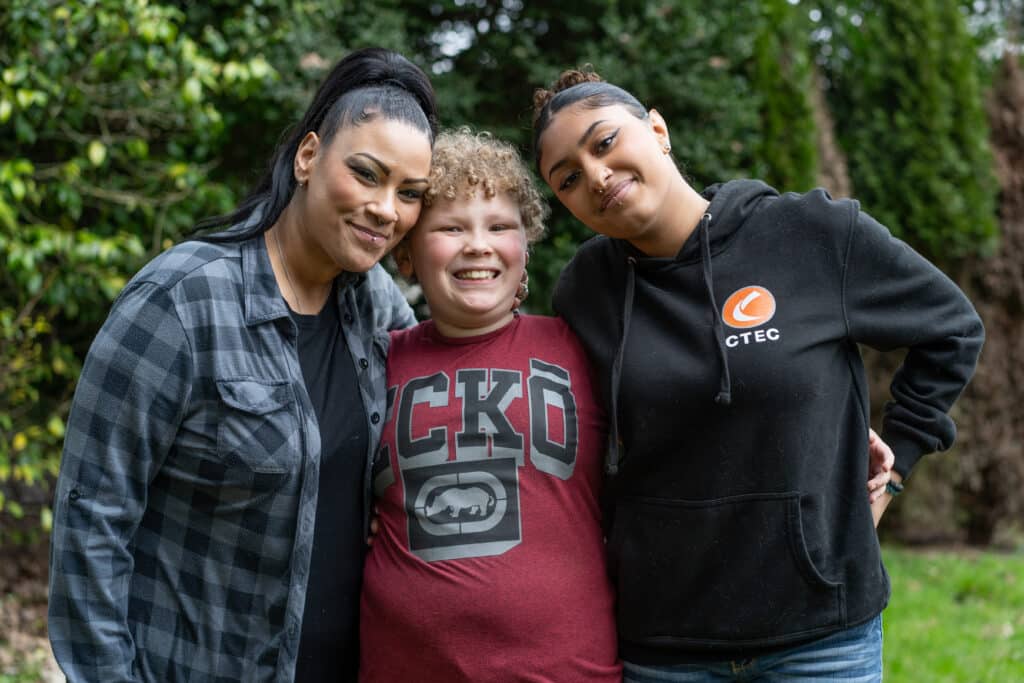Stories
Subscribe NowWhat does Reunification in Foster Care Mean for Families?
Supporting reunification
of families involved in child
welfare is believing
parents can do it.
Reunification in foster care is the primary goal for all children
experiencing the child welfare system in Oregon.
June is National Reunification Month
This month is a time to reflect and focus on the important work, and on the vital roles played by families, case management teams, resource parents, judges, attorneys, and communities in facilitating the safe and stable reunification of separated families.
We celebrate the strength of family reunification in foster care and the power this positive impact has on the lives of children impacted by the foster care system and their parents. National Reunification Month allows us to shed light on the importance of family preservation and the efforts undertaken to ensure children remain or are reunited with their families whenever it is safe to do so.
👉Watch Ari and Savana’s story.
Savana’s Journey:
Savana shared her remarkable life story during her interview with Every Child. She delved into the importance of fostering relationships between resource (foster) parents and biological parents. She emphasizes the significance of these connections for both parents and children, underscoring the need to prioritize family unity and support.
“I was actually born a crack baby to my mom, who was an educated sex worker, and my dad, who was her pimp and also a drug dealer.” Despite the adversity she faced, she managed to escape with her mother to California at the age of three, where they sought refuge in a battered women’s shelter.
Reflecting on her tumultuous family life, Savana recounted, “When my mom met my stepdad, I thought things were going to change, but unfortunately, it was just a different man, same scenario.” This pattern of abuse persisted, leaving Savana grappling with instability and insecurity. By the time Savana reached adulthood, she experienced further abuse before eventually finding herself living in Las Vegas at 18, struggling with addiction and houseless.
Her Daughter:
The turning point in Savana’s life came with the birth of her daughter when she was 21. However, her journey to recovery was overwhelmed with challenges. She admitted, “Unfortunately, I took the exact same path that my mother did.” Through Child Protective Services (CPS) intervention, her daughter was removed from her care.
Savana recalls poignant interactions with her caseworker after her daughter’s removal, “For eight days, I had no idea where she was or who she was with or when or if I was ever going to see her again.” This experience forced her to confront the reality of her situation and additionally the impact they had on her daughter.
As Savana navigated the child welfare system, she found unexpected support from her daughter’s resource parent. Their unwavering support became a lifeline for Savana. “Her resource parent still stood up and was like, ‘I’m here and I support you,'” she recounted. This support was instrumental in her journey to recovery and also eventual reunification with her daughter. Savana continued to emphasize the value of open communication and non-judgmental support from resource parents. Simple gestures like sending photos helped bridge the gap between her and Ari’s resource parent.
Despite the closure of her CPS case, Savana faced further challenges in her journey to recovery. “Just six years ago, I had a second DHS case,” she revealed. However, this time, she found solace in the unwavering support of her daughter’s resource parent, who continued to stand by her side.
Her Reflections:
Reflecting on her relationship with her daughter’s resource parent, Savana continues to express gratitude for the unwavering support she received. “I’m just really grateful for the relationship that I was able to build with her,” she said. This relationship provided her with the support and also the encouragement she needed to overcome adversity and rebuild her life.
Savana’s story is one of resilience, redemption, and the transformative power of compassion and support. Through her journey, she not only found healing and redemption but also forged a lasting bond with her daughter’s resource parent, who became a pillar of strength and support in her and her daughter’s life.


🎙️Reunification via The Foster Points
What Is the Impact of Refocusing on Reunification in Foster Care?
Information below shared from the American Bar Association:
The impacts of refocusing on reunification are felt across programs, organizations, communities, and families. Impacts can be large and small (small things add up to big things!). Some impacts we have seen across Oregon include:
- A culture shift for ODHS, our legal partners, and our communities recognizes that children and parents do best when they are together, and when we work as a team.
- We place a greater focus on what supports safe and timely reunification: a trusted, caring relationship between parent and caseworker, frequent family time (visitation), a team approach, and clear conditions for return.
- We recognize that to reunify we must ENGAGE. A laser focus has been placed on what ODHS is doing to engage parents in their case plans. Each district in the state is required to build a Parent Engagement Plan with clear expectations, priorities, data measures, outcomes, and accountability.
- Our protective services and permanency programs have shifted to co-case management within seven days of placement of a child. Both programs work as a team to engage families quickly to support a safe and speedy return home.
- At every opportunity we (ODHS, community partners, courts) ask: Can this child go home? Have we met the conditions for return? If not, why not? What needs to be in place and how do we get there?
- A focus on reunification is a focus on believing parents can do it. As our parent mentors say: The most important thing in my case was that, “My caseworker believed in me, even when I didn’t believe in myself.”
MORE RESOURCES for
REUNIFICATION IN FOSTER CARE
💚 Resource Parent Grief | ORPARC
💚 Reunification From Foster Care: A Guide for Parents—June 2024 | Vol. 25, No. 5 (hhs.gov)
💚 Reimagining Reunification: Expanding Family and Community Connections for Youth